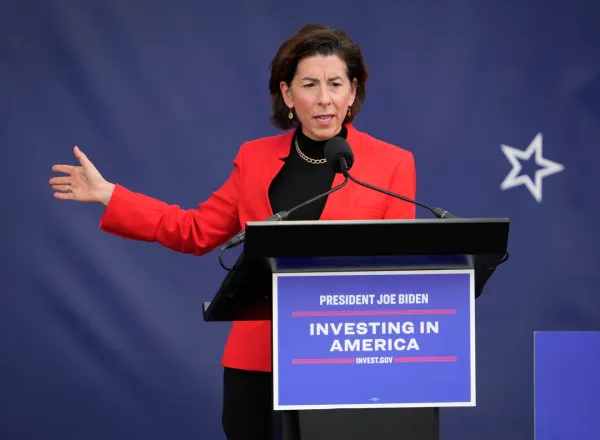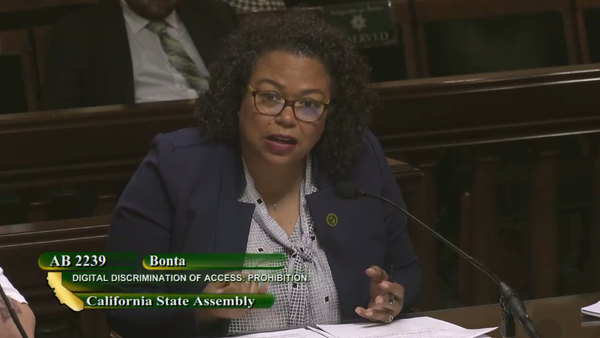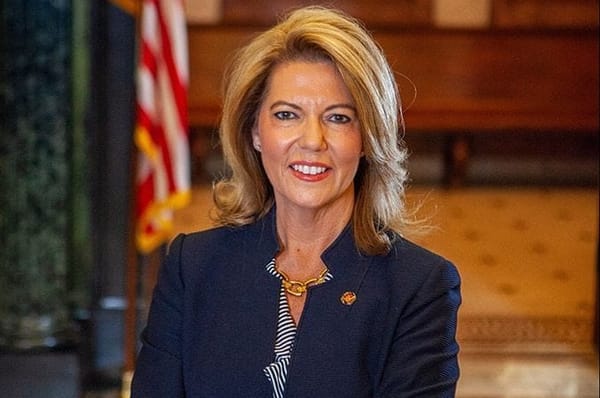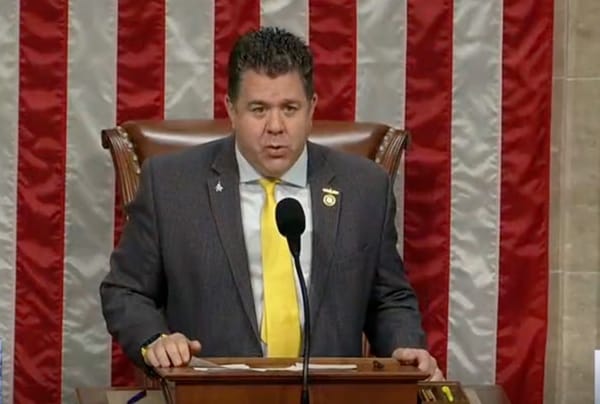Sen. Marsha Blackburn Scolds Big Tech For Extracting Data and Calls for Greater Transparency
WASHINGTON, June 27, 2019 – The framework for federal privacy regulation is emerging as another flashpoint in some conservatives’ political battles with Silicon Valley powerhouses. In particular Tennessee Republican Sen. Marsha Blackburn said Wednesday that technology companies are using the complex
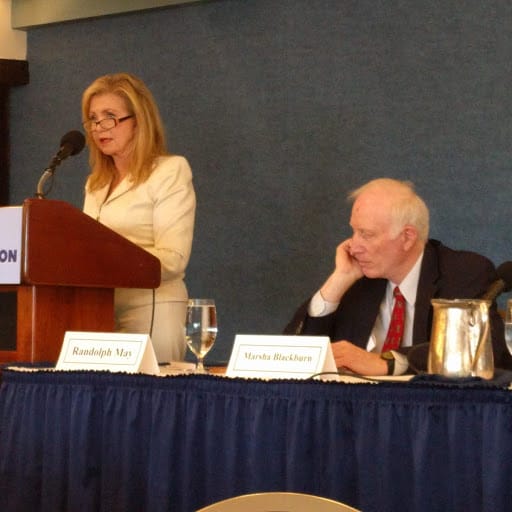
WASHINGTON, June 27, 2019 – The framework for federal privacy regulation is emerging as another flashpoint in some conservatives’ political battles with Silicon Valley powerhouses.
In particular Tennessee Republican Sen. Marsha Blackburn said Wednesday that technology companies are using the complexity of their platforms to justify lack of transparency regarding how they are using consumers’ data.
“The more data companies extract, the more profitable they are,” she said, speaking at a keynote address to the generally free-market group Free State Foundation.
“Big tech needs to trust the American consumer to make the wise decision, which means big tech needs to be transparent,” said Blackburn.
Many at the event endorsed the call for privacy regulation. Privacy violations can result in consumer harm in the marketplace, harms which should be “identified, analyzed and potentially regulated,” said Noah Phillips, Commissioner at the Federal Trade Commission. Congress should “move cautiously” to ensure that consumers have more accessible information to make informed decisions.
Because data use and collection are “vital” for the economy, any new privacy law must allow room for growth and innovation as well as “investment and risk-taking”, he said.
The consensus among policymakers and consumers is that they need to provide consumers control of their personal information with a “neutral all-encompassing federal privacy law,” said Kelly Cole, senior vice president of government affairs at Cellular Telecommunications Industry Association.
The sharing of personal data must be done “carefully and approximately,” said Cole, otherwise consumers may “turn away” from innovating technology that may benefit them. The FTC, she said, has the “right expertise” to develop strong and robust privacy rules to ensure consumers “keep coming back.”
There is “no way” to opt out of data collection anymore, said Michelle Richardson, director at the Center for Democracy and Technology. She argued that Congress needs to rebalance power between companies and consumers and set “clear lines and boundaries” to determine what kind of data sharing is inappropriate.
“People would be shocked to hear how little their personal data is worth,” she said. ”There are many ways to process data in innovative ways, we should also expect very advanced privacy policies.”
Legislation should give the FTC limited rule making authority and additional resources to help grow the internet ecosystem, said Lynn Follansbee, vice president of law and policy at US Telecom. A strong, national privacy framework, she said, will balance the need for clear protections for American consumers and allow “unparalleled” innovation.
Consumers should have “meaningful transparency” regardless of where they are and what product or service they are using, said Loretta Polk, vice president and deputy general counsel of NCTA, an association of cable and broadband operators. The work that the FTC is doing now can help shape the legislation’s framework.
“Parity ensures consistent privacy protection for consumers in the digital marketplace, regardless of the entity they interact with,” she said.
(Photo of Sen. Marsha Blackburn’s keynote address at the Free State Foundation event.)


